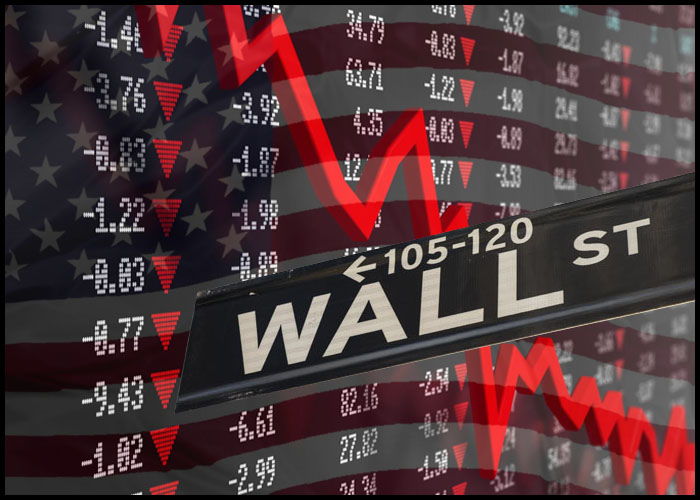Stocks moved sharply lower at the start of trading on Thursday, extending the sell-off seen over the four previous sessions. With the steep drop, the Dow hit an eleven-month intraday low and the Nasdaq tumbled to its lowest intraday level in almost a year.
The major averages have regained some ground since then, with the Nasdaq showing a notable recovery attempt, but currently remain firmly negative.
Currently, the Dow is down 737.60 points or 2.2 percent at 32,394.16, the Nasdaq is down 144.72 points or 1.1 percent at 12,892.77 and the S&P 500 is down 67.18 points or 1.6 percent at 4,158.32.
The extended sell-off on Wall Street comes as the fears of a Russian invasion of Ukraine have become a reality, with Russian Vladimir Putin declaring war on the neighboring country late Wednesday night.
Rather than focusing on contested regions in the eastern part of the country as some had expected, Putin has seemingly launched an all-out invasion of Ukraine.
Reports of explosions and Russian troops crossing the border have come in from across Ukraine as part of what could be a prolonged campaign.
U.S. President Joe Biden and other world leaders have condemned Russia for the “unprovoked and unjustified attack,” which Biden predicted would cause a “catastrophic loss of life and human suffering.”
“Russia alone is responsible for the death and destruction this attack will bring, and the United States and its Allies and partners will respond in a united and decisive way,” Biden said in a statement. “The world will hold Russia accountable.”
The U.S. and other countries around the world are expected to impose more severe sanctions on Russia following the invasion, potentially targeting the country’s all-important energy sector.
The invasion has contributed to a spike in the price of crude oil, which topped $100 a barrel for the first time since 2014, raising concerns about even higher inflation.
The developments overseas have overshadowed a report from the Labor Department showed a modest decrease in initial jobless claims in the week ended February 19th as well as a Commerce Department report showing slightly stronger than previously estimated GDP growth in the fourth quarter of 2021.
Banking stocks are turning in some of the market’s worst performances on the day amid a drop in treasury yields, with the KBW Bank Index plunging by 3.9 percent. Earlier in the session, the index hit a two-month intraday low.
Substantial weakness is also visible among airline stocks, as reflected by the 3.6 percent nosedive by the NYSE Arca Airline Index.
Steel stocks are also seeing considerable weakness in morning trading, resulting in a 3.4 percent slump by the NYSE Arca Steel Index.
Computer hardware, brokerage, and pharmaceutical stocks have also moved notably lower amid broad based weakness on Wall Street.
In overseas trading, stock markets across the Asia-Pacific region moved sharply lower during trading on Thursday. Japan’s Nikkei 225 Index tumbled by 1.8 percent, while Hong Kong’s Hang Seng Index plunged by 3.2 percent.
The major European markets have also shown substantial moves to the downside on the day. While the German DAX Index has plummeted by 4.1 percent, the French CAC 40 Index is down by 3.9 percent and the U.K.’s FTSE 100 Index is down by 3.3 percent.
In the bond market, treasuries have pulled back well off their best levels but continue to see notably strength. Subsequently, the yield on the benchmark ten-year note, which moves opposite of its price, is down by 4.7 basis points at 1.930 percent.
Source: Read Full Article
